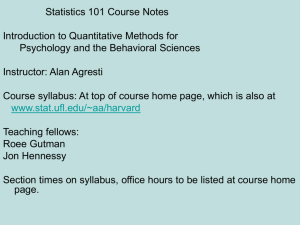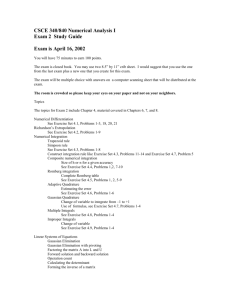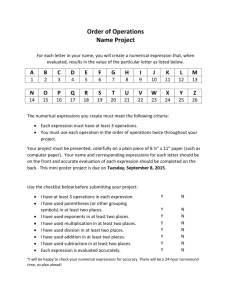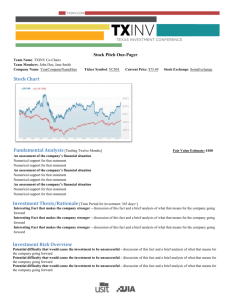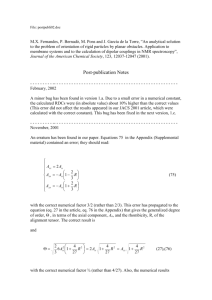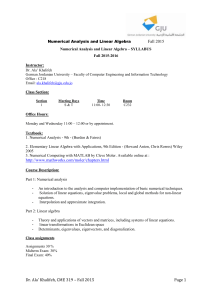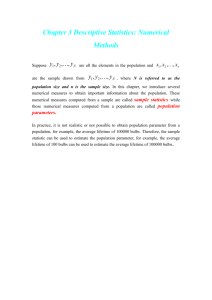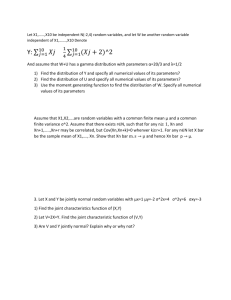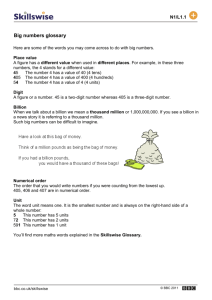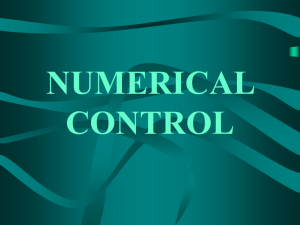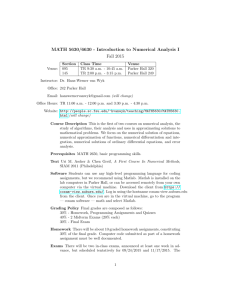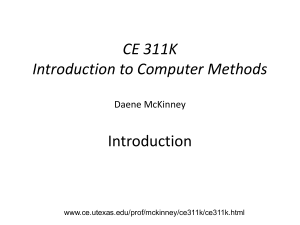Mathematics 5310: Computational Methods in Applied Sciences I
advertisement
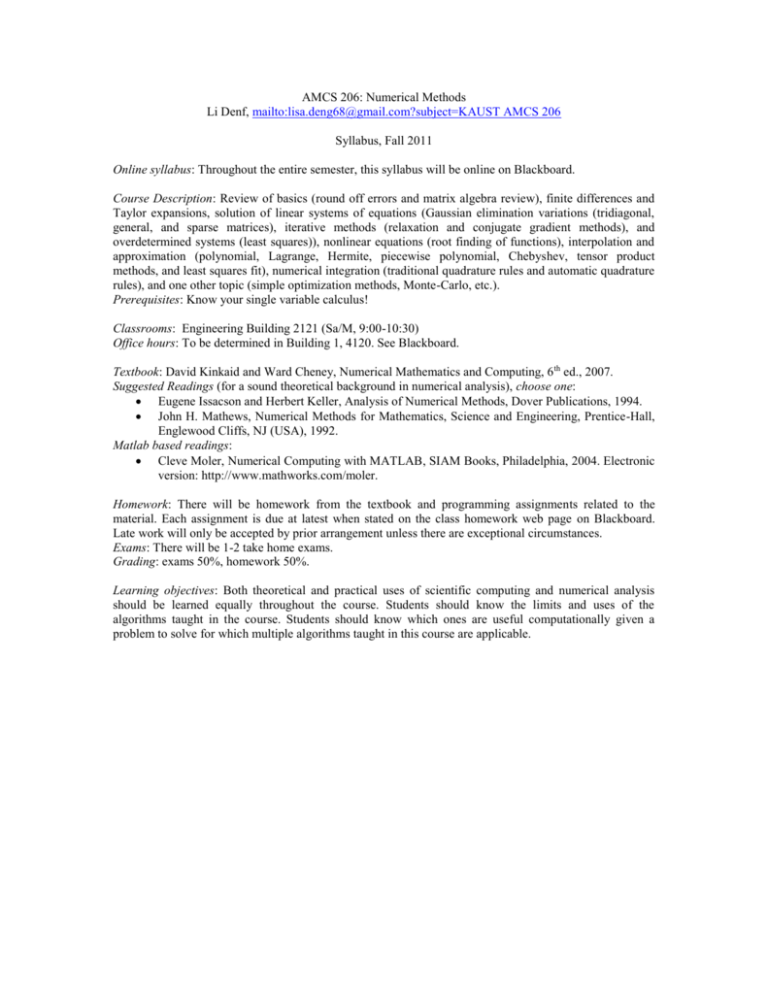
AMCS 206: Numerical Methods Li Denf, mailto:lisa.deng68@gmail.com?subject=KAUST AMCS 206 Syllabus, Fall 2011 Online syllabus: Throughout the entire semester, this syllabus will be online on Blackboard. Course Description: Review of basics (round off errors and matrix algebra review), finite differences and Taylor expansions, solution of linear systems of equations (Gaussian elimination variations (tridiagonal, general, and sparse matrices), iterative methods (relaxation and conjugate gradient methods), and overdetermined systems (least squares)), nonlinear equations (root finding of functions), interpolation and approximation (polynomial, Lagrange, Hermite, piecewise polynomial, Chebyshev, tensor product methods, and least squares fit), numerical integration (traditional quadrature rules and automatic quadrature rules), and one other topic (simple optimization methods, Monte-Carlo, etc.). Prerequisites: Know your single variable calculus! Classrooms: Engineering Building 2121 (Sa/M, 9:00-10:30) Office hours: To be determined in Building 1, 4120. See Blackboard. Textbook: David Kinkaid and Ward Cheney, Numerical Mathematics and Computing, 6 th ed., 2007. Suggested Readings (for a sound theoretical background in numerical analysis), choose one: Eugene Issacson and Herbert Keller, Analysis of Numerical Methods, Dover Publications, 1994. John H. Mathews, Numerical Methods for Mathematics, Science and Engineering, Prentice-Hall, Englewood Cliffs, NJ (USA), 1992. Matlab based readings: Cleve Moler, Numerical Computing with MATLAB, SIAM Books, Philadelphia, 2004. Electronic version: http://www.mathworks.com/moler. Homework: There will be homework from the textbook and programming assignments related to the material. Each assignment is due at latest when stated on the class homework web page on Blackboard. Late work will only be accepted by prior arrangement unless there are exceptional circumstances. Exams: There will be 1-2 take home exams. Grading: exams 50%, homework 50%. Learning objectives: Both theoretical and practical uses of scientific computing and numerical analysis should be learned equally throughout the course. Students should know the limits and uses of the algorithms taught in the course. Students should know which ones are useful computationally given a problem to solve for which multiple algorithms taught in this course are applicable.
